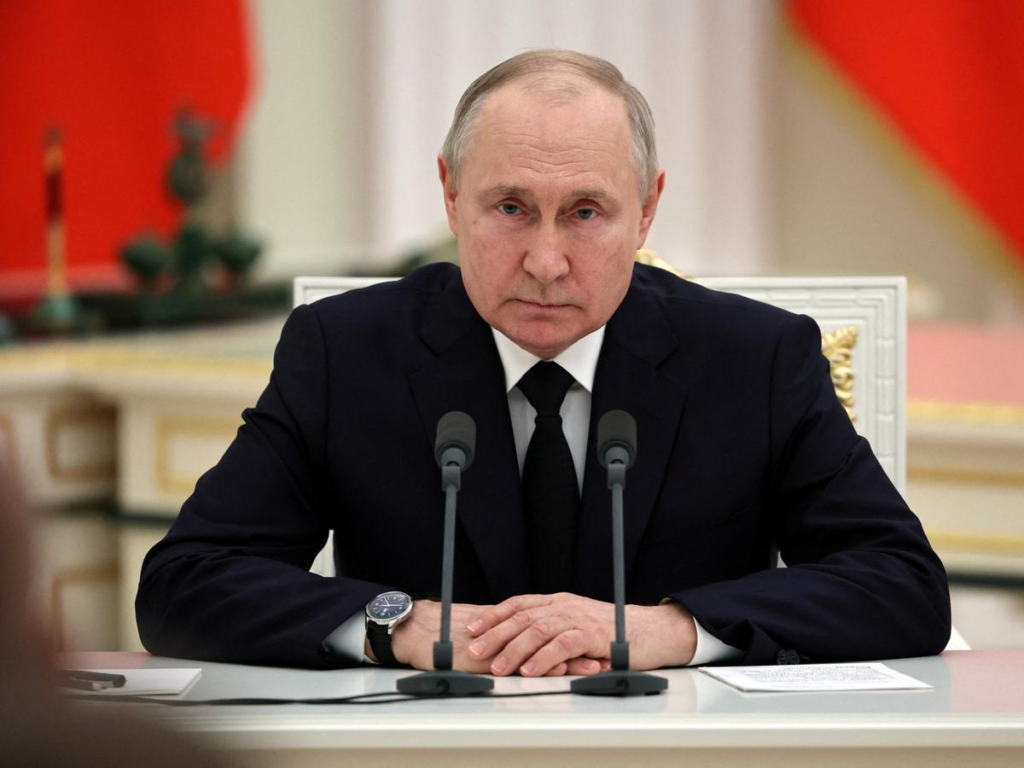Is Russia Truly Creating a Multipolar World Order?
Russia has consistently emphasized the emergence of a multipolar world order as a strategic priority, framing it as an inevitable shift away from Western dominance.

A multipolar world order refers to an international system where power is distributed among multiple states or blocs rather than being concentrated in one (unipolar) or two (bipolar) dominant powers.
This concept is rooted in realist theories of international relations, particularly in discussions about power distribution and systemic stability. While no single scholar is credited with coining the term, its modern theoretical framework emerged through analyses of historical systems and debates among political scientists like Kenneth Waltz, John Mearsheimer, and Hans Morgenthau
Core Principles
Russian leaders argue that the new order is irreversible and dynamic, reflecting global diversity rather than Western hegemony.

President Vladimir Putin contrasts this with historical systems like the Westphalian or Yalta models, asserting that nations now prioritize sovereignty, self-determination, and resistance to “geopolitical greed”.
Is Russia Truly Creating a Multipolar World Order?
Key Institutions
Russia positions BRICS and the Shanghai Cooperation Organization (SCO) as pillars of this multipolar framework.
BRICS which is Expanded in 2024 to include 10 full members and 13 partner states, it aims to reform global financial systems (e.g., alternative payment mechanisms) and reduce reliance on Western institutions.
SCO Focuses on security, economic integration, and countering terrorism, with trade among members growing by 25% in 2024.
Strategic Objectives
Promoting national currency transactions (e.g., over 92% of Russia’s SCO trade in 2024 used non-Western currencies).
Leveraging resentment toward underrepresentation in bodies like the UN Security Council and IMF to attract support.
Strengthening SCO’s anti-terrorist and anti-drug initiatives to address regional threats
Challenges
While Russia’s narrative resonates with many Global South nations, its alignment with authoritarian regimes and reliance on China raises questions about the order’s inclusivity.
Western critics argue the vision risks fragmentation and undermines multilateralism
Foreign Minister Sergey Lavrov underscores that Russia’s goal is to ensure the UN Charter’s principles of sovereignty and non-interference are upheld, framing multipolarity as a defense against Western unilateralism.
Deepening the Russia-China Partnership
The “No Limits Partnership” with China serves as a geopolitical counterweight to Western dominance:
Bilateral trade surged to $240 billion in 2024, focusing on energy, technology, and infrastructure.
Both nations frame their alliance as a model of “sovereign equality,” rejecting Western “unilateralism” and advocating UN Charter principles like non-interference.
Economic Decoupling from Western Systems
Over 92% of Russia’s trade with SCO countries now uses non-Western currencies, circumventing sanctions.
Initiatives like BRICS’ New Development Bank and cross-border payment alternatives aim to erode the IMF and World Bank’s influence.
Russia targets nations resentful of underrepresentation in Western-dominated institutions:
Lavrov emphasizes the “world majority” concept, framing multipolarity as essential for fairness in bodies like the UN Security Council
Efforts include expanding ties in Africa and Latin America, positioning Russia as a partner for development and security.
Putin contrasts multipolarity with past “unipolar” models (e.g., Yalta), arguing it reflects natural civilizational diversity
Rhetoric emphasizes “indivisible security” and resistance to NATO expansion, framing the Ukraine conflict as a defense against Western aggression.
Challenges and Criticisms
Reliance on authoritarian regimes and China’s dominance risks replicating hierarchical structures.
Western states dismiss the model as a pretext for spheres of influence, warning of fragmented global governance.
Russia’s multipolar blueprint hinges on institutional cohesion, economic resilience, and sustained ideological appeal—though its success remains contingent on navigating internal contradictions and Western pushback.


 Trump Disappointment Over Russian Strikes
Trump Disappointment Over Russian Strikes  M&S Halts Agency Work After Major Cyberattack
M&S Halts Agency Work After Major Cyberattack  U.S. Airstrike Kills Dozens of African Migrants
U.S. Airstrike Kills Dozens of African Migrants ![An ambulance is parked at the site of the Lapu Lapu event in Vancouver [Jennifer Gauthier/Reuters]](https://worldinfo.news/wp-content/uploads/2025/04/Car-Crashes-into-Vancouver-Festival-Kills-Several-554x346.webp) Car Crashes into Vancouver Festival Kills Several
Car Crashes into Vancouver Festival Kills Several  Trump Meets Zelensky, Questions Putin’s Peace Intentions
Trump Meets Zelensky, Questions Putin’s Peace Intentions  Kashmir Tensions Rise After Attack and Border Clashes
Kashmir Tensions Rise After Attack and Border Clashes